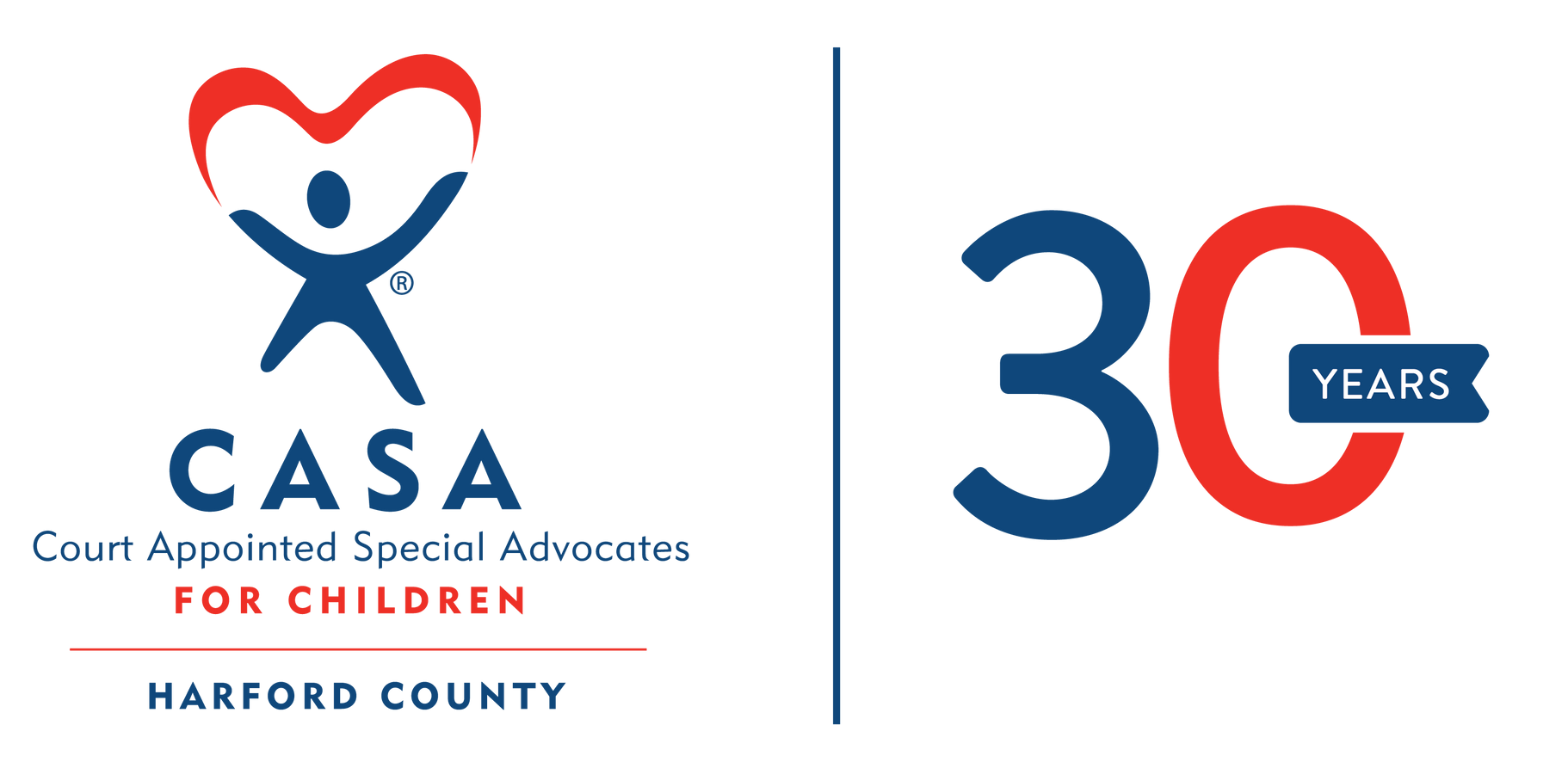Frequently Asked Questions
Q: Who are CASA Volunteers?
CASA is an acronym for Court Appointed Special Advocate. CASA volunteers are ordinary people who care about kids. CASA volunteers come from all backgrounds. Many work full time. Some are students or retired people. Most CASA volunteers work on one case at a time. No legal expertise is required. You must be at least 21 to be a CASA.
Q: What exactly does a CASA Volunteer do?
Harford County CASA volunteers are assigned to the case of a child who is within the juvenile court system and found to be a child in need of assistance due to abuse or neglect. CASA Volunteers conduct thorough research on the background of the case, reviewing documents, interviewing everyone involved, including the child. They make reports to the court, recommending what they believe is best for the child, providing the master or judge with information that will help them make an informed decision.
CASA volunteers can be instrumental in assuring that a child or family receives services which the court has ordered things like substance abuse counseling or special education testing. During the life of a case, a CASA volunteer monitors the child's situation to make sure he or she remains safe. CASA volunteers may be the only constant the child knows as they move through the labyrinth of the child welfare system.
Q: What does it take to be a CASA Volunteer?
Commitment
When you take on a case, you take on a child's future. Most programs ask for a commitment of at least one year. Some cases last longer. The amount of time you give to a case will vary depending on the stage of the proceedings. Nationally, CASA volunteers give an average of 88 hours per year.
Objectivity
The CASA volunteer role is to represent the best interests of the child. That may not always mean what the child wants. CASA volunteers must be able to talk to everyone involved in a case and remain objective in their recommendations. While they will establish a relationship with the child, the CASA volunteers' role is not to become a Big Brother or Sister to the child.
Good Communication Skills
CASA volunteers must be able to talk to a wide variety of people from healthcare professionals to school officials to angry parents. CASA volunteers present written reports to the court, sometimes speaking in the court room on behalf of the child's best interests.
Q: What kind of training does one receive before becoming a CASA?
CASA programs provide in-depth training on issues of the court process, child development, abuse and neglect, cultural competency, advocacy and interviewing techniques, substance abuse and other public health topics, etc. CASA of Harford County also offers regular in-service training on many subjects relevant to the work the CASA's do on a daily basis.
National CASA has developed a 30-hour curriculum and accompanying materials which local CASA programs adapt to their own communities. At CASA of Harford County, we use a "Flex Training" model that incorporates 15 hours of online training done at home and 15 hours of in class sessions. Once you complete your training you will be assigned a volunteer supervisor who will guide you through your case and reinforce the information you learned in your initial training.
